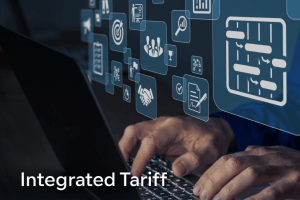Are you a business owner and have heard that you should apply electronic invoicing, but you do not know if that’s true or not? If so, what are the requirements for the e-invoice?
Are all companies obliged to apply this invoice, or are there a certain number that are obligated to apply it and the rest are exempt from it?
Are you thinking about those questions that made you confused?
If that is the case, everything has a solution, and we’re here to help you get out of this problem and to answer all the questions you’re thinking about. Follow with us.
Electronic invoice requirements
The most important requirements for the electronic invoice are to send a request to the Tax Authority, to provide the enterprise management planning program, as well as to obtain the HS code of goods and the electronic signature certificate.
You must also attach a number of important documents in order to get an appointment to create the digital file, and these documents are a copy of:
- Tax card.
- Value-added tax registration.
- Letter of authorization to the representative.
- ID card.
The date of implementation of electronic invoicing in the Kingdom of Saudi Arabia
The Kingdom of Saudi Arabia implemented the electronic invoice project in two phases:
1.1.First stage:
This phase officially started on December 4, 2021, and is called the “Issuance and preservation phase”.
The Saudi Arabian Zakat, Tax and Customs Authority has established this stage as an awareness-raising phase.
This phase aims to give an overview of what electronic invoices are and were not mandatory for all companies.
1.2.Second stage
This phase officially began in January 2023 and is called the “Linkage and Integration Phase”.
It is an extension of the previous phase and stipulates that the systems providing comprehensive services for electronic invoices must be integrated and linked with the Fawtar system of the Zakat, Tax and Customs Authority in the Kingdom.
Both phases are concerned with the regulation of the tax register for large, medium, and small enterprises alike.
Companies that are obligated and exempt from electronic invoices
Are you still wondering about the companies that are obligated and exempt from electronic invoices after you’ve identified the terms of the electronic invoice?
So you know your company’s position or your project on that bill, so you know what you can do next?
If so, Just follow up on the following:
2.1.Companies obligated by electronic invoices
The Zakat, Tax and Customs Authority has stipulated that the electronic invoice system should be applied to all companies, entrepreneurs, and points of sale to which the value-added law applies.
2.2.Companies exempted from electronic invoicing
The Zakat, Tax and Customs Authority has identified a number of categories that are exempt from the application of this invoice, as follows:
- Supplies are subject to value-added tax (VAT) by the reverse counting mechanism.
- Payments received from a person subject to value-added tax but with tax-exempt imports prior to the supply process
- Companies and entrepreneurs importing services or goods from outside Saudi Arabia
- Supplies that are exempt from value-added tax in accordance with the Authority’s law.
The best Electronic Invoicing Software
There are many programs that support electronic invoicing, including: Qoyod program, which is the best accounting program.
Qoyod provides all its customers with the application of electronic invoicing by generating a QR code that entrepreneurs and companies can use with each invoice for a simple price that is not comparable to other accounting programs.
One of its most important features is that it controls all details of your invoices in accordance with the regulations and specifications approved by Saudi Arabia’s Zakat, Tax and Customs Authority.
You must know that the electronic invoice cannot be deleted after its issuance.
So be careful to edit it yourself, and let the experts do it for you while you’re relieved.
The conclusion
Saudi Arabia seeks to advance towards an effective digital environment.
Saudi Arabia has therefore established the terms of the electronic invoice to facilitate all financial transactions between companies.
As mentioned before, it implemented that invoice in two stages: the first stage, also called the issuance and preservation phase.
This phase began in December 2021, while the second phase began in January 2023, also called the linkage and integration phase.
At the end of this article, we would like to highlight the importance of Qoyod software, which is the best accounting software that you can find and use compared to other accounting programs that consume your time and money. And you won’t be satisfied in the end with what they have to offer.
Qoyod offers an electronic invoice system and a point-of-sale system at prices that suit everyone.
So save your time and your money, and contact us immediately.
What are you waiting for? Try Qoyod now for free for 14 days and make your business compete with other global businesses.




